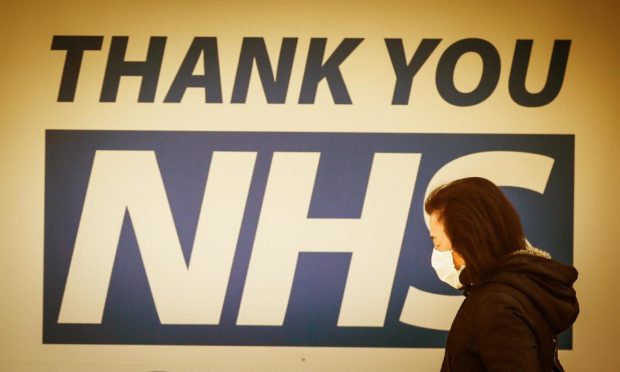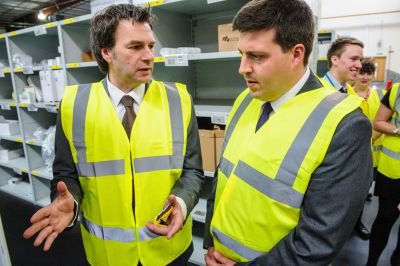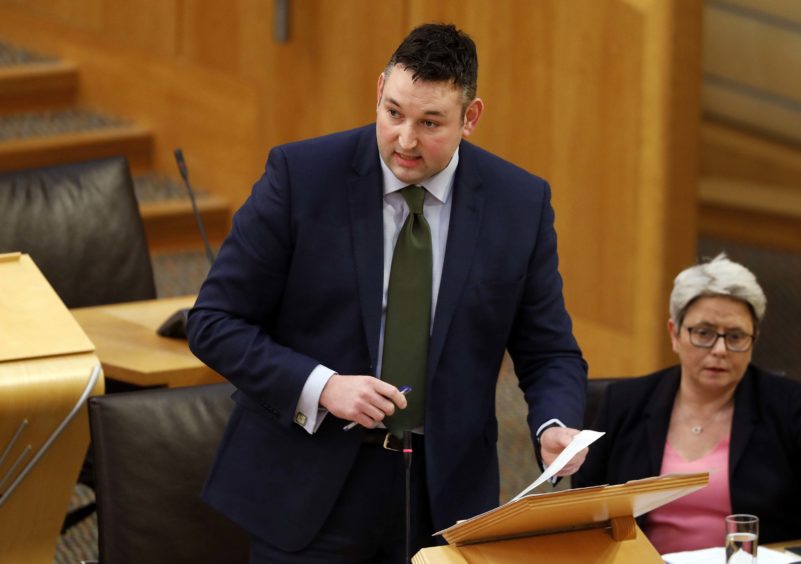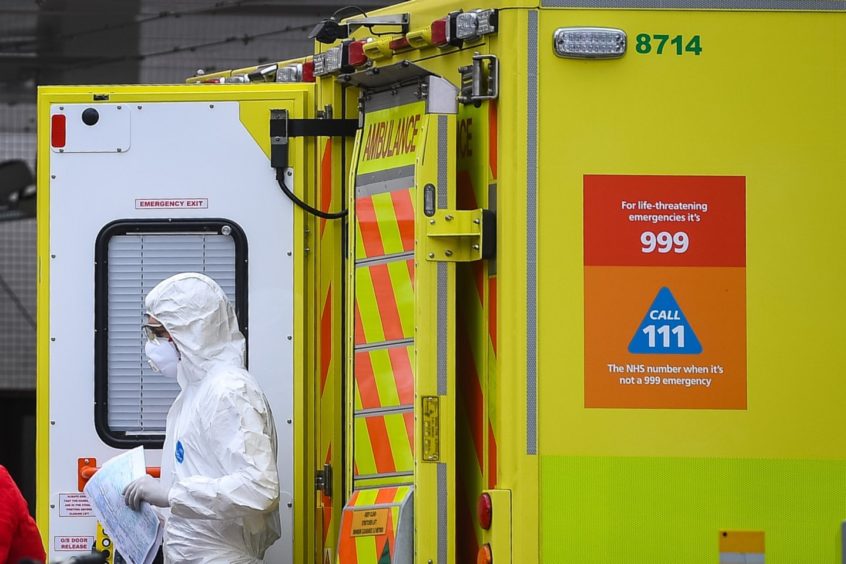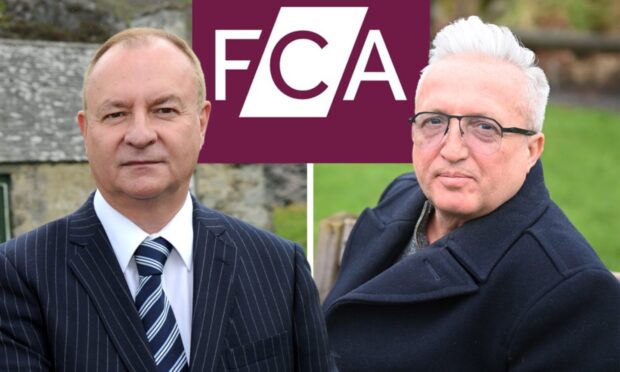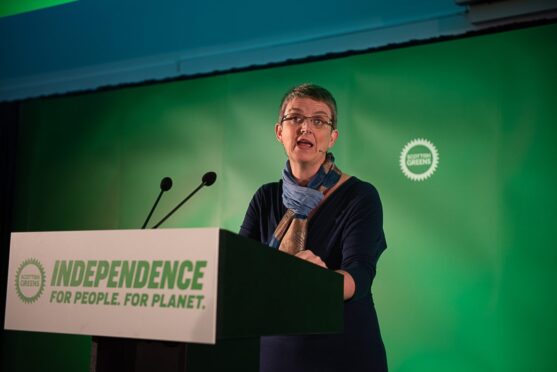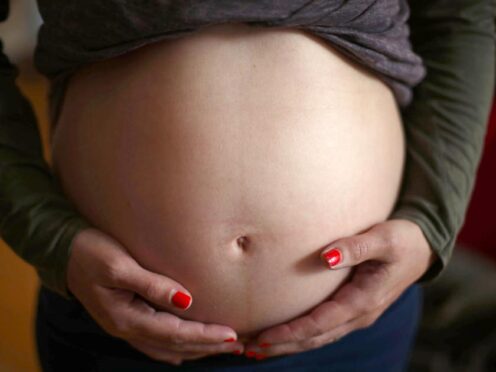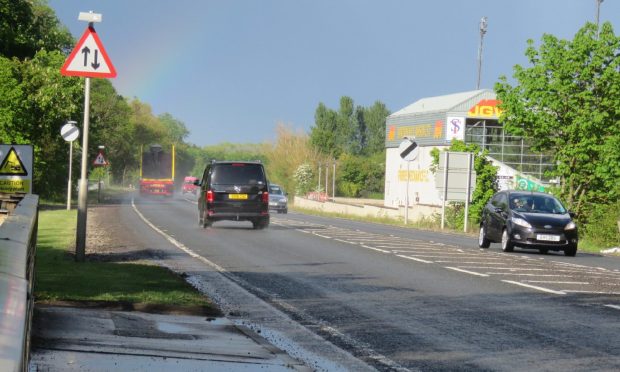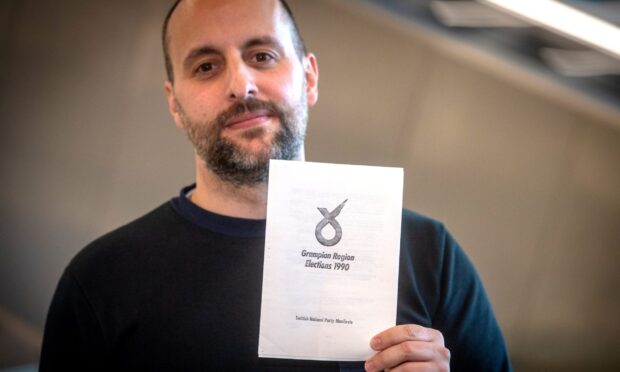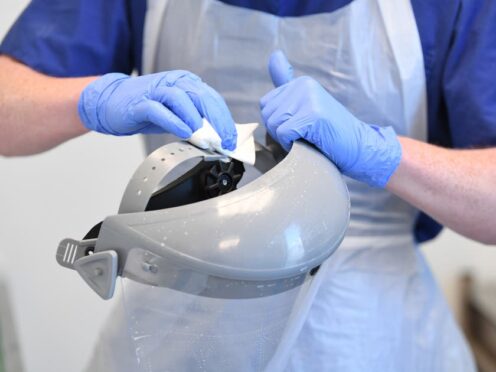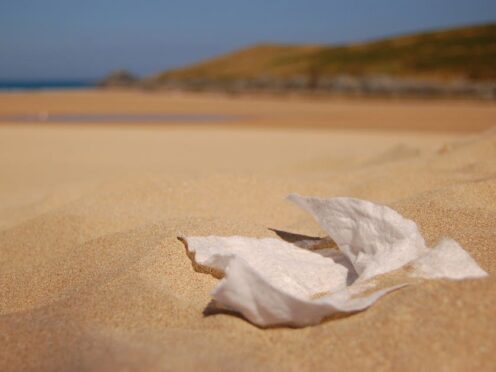Concerns about PPE stocks were raised regularly by senior health chiefs well before the coronavirus outbreak swept across the UK, NHS emails have revealed.
Internal messages suggest the Scottish Government was aware for “a long time” about the issues with the face mask respirators in the country’s emergency supply.
Scottish Conservative health spokesman Miles Briggs claimed that the memos exposed the “scale of negligence” in the lead up to the coronavirus crisis.
And BMA Scotland chairman Lewis Morrison said it was “extremely important” to now start to assess how PPE (personal protective equipment) was managed by the authorities in the early days of the pandemic, in order to prevent a repeat.
The Scottish Government insisted it has had “adequate stock of all forms of PPE supplies for the level of demand at all times”.
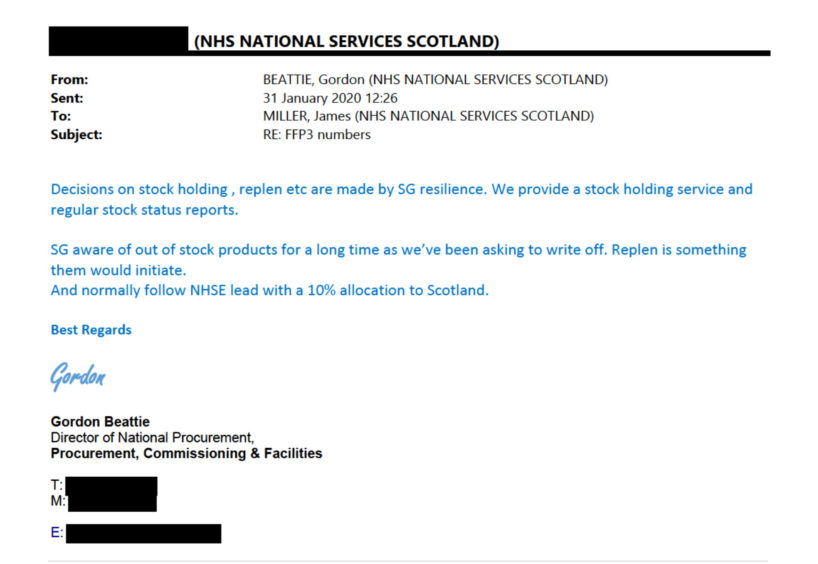
A worldwide shortage of PPE is thought to have contributed to the spread of the disease and many deaths, including among health care staff on the front line.
Health Secretary Jeane Freeman has previously told MSPs on Holyrood’s health committee that the supply of FFP3 masks “was challenging at one point”.
Emails, disclosed to us under freedom of information laws, show how procurement chiefs at NHS National Services Scotland (NHS NSS) discovered that much of its supplies for a pandemic were out-of-date in the early days of the crisis.
On January 31, the day the UK’s first two coronavirus cases were confirmed, NHS NSS procurement, commissioning and facilities director Jim Miller asked for an update on stocks of the tight-fitting FFP3 masks, which are used by medical professionals.
His colleague, NHS NSS national procurement director Gordon Beattie, responded that there were 37,800 with valves, and clarified that these were individual masks, not boxes.
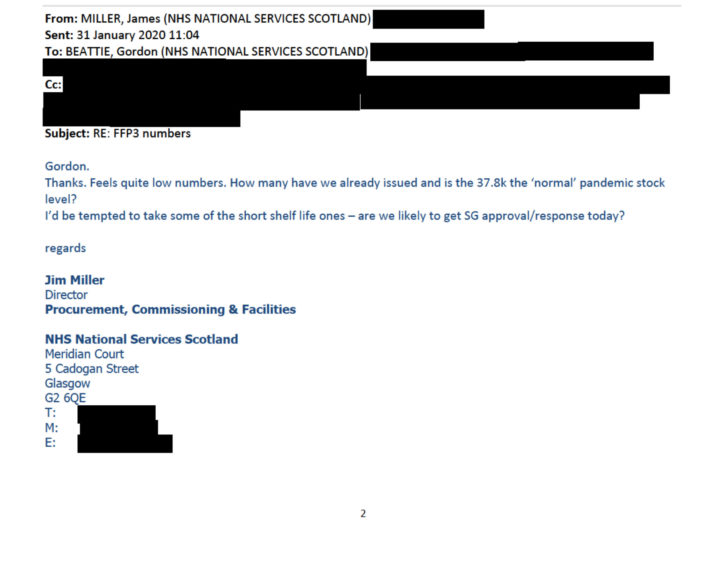
Mr Miller said that the number “feels quite low”, before Mr Beattie told him that “the stocks are low because the larger stocks are out-of-date”.
“That doesn’t sound great”, Mr Miller said, as he questioned the process in place for replenishing the supplies.
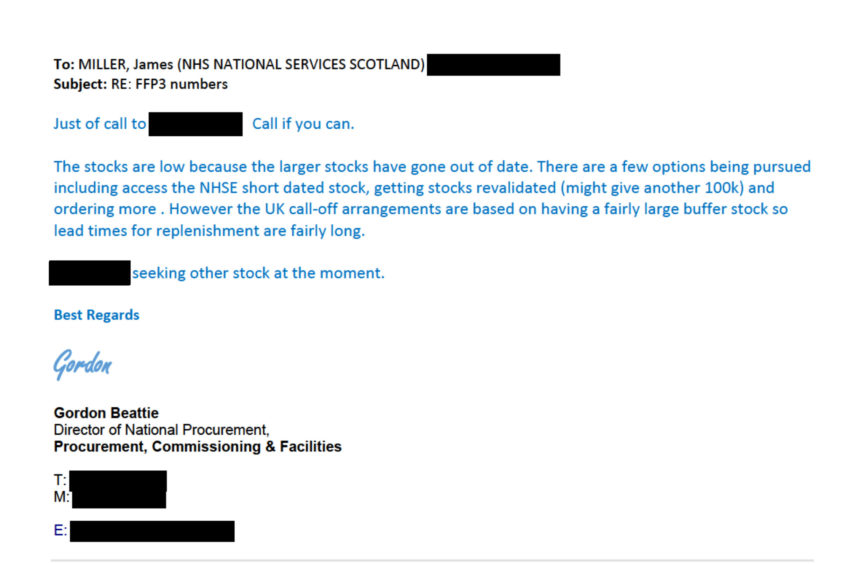
Mr Beattie told him: “Decisions on stock holding, replen etc are made by SG resilience (sic).
“We provide a stock holding service and regular stock status reports.
“SG aware of out of stock products for a long time as we’ve been asking to write off. Replen is something them would initiate (sic).
“And normally follow NHSE (NHS England) lead with a 10% allocation to Scotland.”
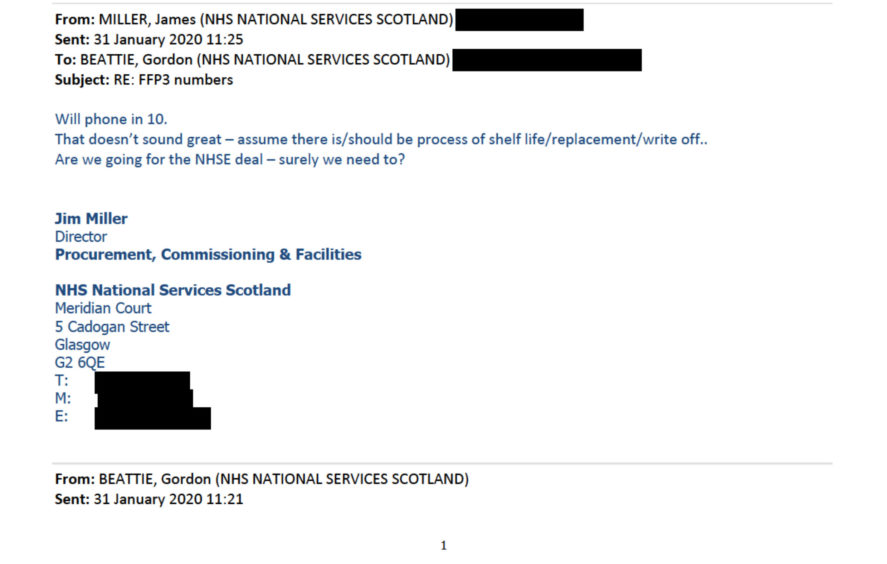
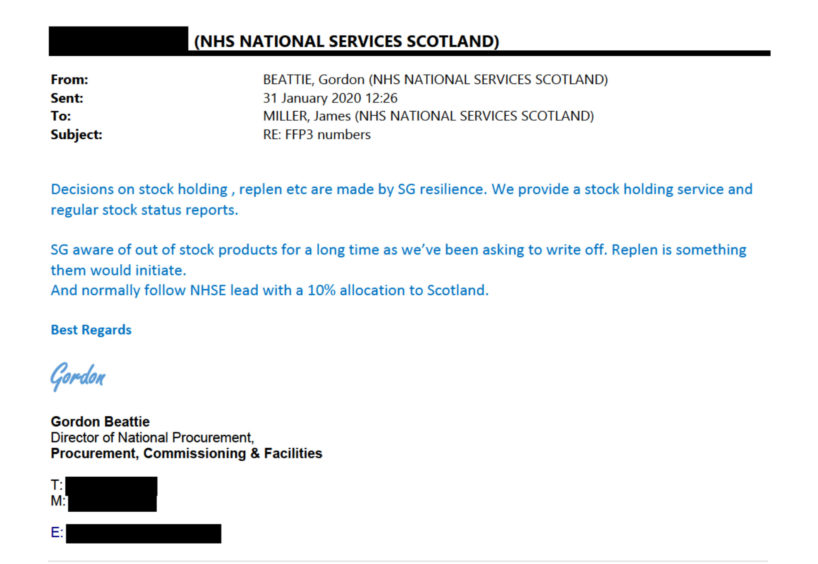
Across Britain, it has been reported that 200 million items of vital PPE kit was out-of-date when the pandemic hit.
In March the Scottish Government announced that 1.5m of the out-of-date FFP masks had been reassessed as safe by the Health and Safety Executive and Health Protection Scotland.
Reacting to the NHS NSS emails, Mr Briggs said: “We already knew the SNP government’s performance on getting PPE to the right places was shambolic.
“Now we learn of the scale of negligence in the lead up to the pandemic too.
“This exchange makes it very clear that the Scottish Government had been well-warned about shortages of PPE, and the fact so much of it was out of date.
“Those warnings were ignored and, as a result, front line workers all across Scotland had to make do without the necessary protection from a deadly virus.”
Dr Morrison, who is the head of the British Medical Association (BMA) in Scotland, a trade union for doctors, said: “Some of these emails date from January, where there clearly were some concerns about levels of PPE and in particular masks available in Scotland.
“It was absolutely right to have been taking steps to address that. The experience doctors reported to us on PPE was initially one of considerable concern and anxiety, in particular around sustainability of supply.
“However, the position did improve and we welcomed the commitment from the cabinet secretary and the Scottish Government to address concerns raised by staff directly.”
He added: “It’s now extremely important to assess how PPE was managed as we look back on the pandemic, both long term and to ensure we are well prepared for any potential second wave.”
A Scottish Government spokeswoman said: “From the outset of the pandemic, we acted quickly and decisively to expand and strengthen PPE supplies in Scotland, ensuring that all front line health and social care workers have access to the PPE they need.
“We have had adequate stock of all forms of PPE supplies for the level of demand at all times.
“Revalidating stock and extending the shelf-life of masks is standard practice to maintain pandemic stock levels and this was used in relation to FFP3 respirator stocks as announced in March.
“Any PPE which has been issued to NHS boards which may have passed its original expiry date has been re-tested to ensure it remains safe to use.
“Such testing has been approved and reviewed by the Health and Safety Executive and to standards relevant to the PPE being tested.
“Prior to Covid-19, National Services Scotland (NSS) supplied around 52,000 FFP3 masks per year, equating to around 1,000 per week.
“The use of these masks increased significantly across health and social care in late March and NSS is now supplying up to 220,000 units per week to health boards, 220 times more than was previously required.
“In total, boards are reporting that they are holding 1,900,000 units locally to ensure an adequate supply at board level.”
She added: “In addition, we have supported many Scottish businesses to innovate and alter their production processes so they can start making key items like masks, gowns and hand sanitiser, making us less reliant on global supply chain and we also created a dedicated team to secure PPE from abroad that arrived quickly and met our quality standards.”
A spokeswoman for NHS NSS said: “During the earliest stages of the Covid-19 pandemic, our national procurement team was involved in multiple urgent discussions with Scottish and UK governments, and NHS colleagues across the four nations, to assess the availability of PPE.
“These formed part of a UK-wide response to a fast-developing global pandemic.
“The decisions, assessments and guidance given during the initial period were based upon the best available information at that time and have been constantly reviewed and updated as updated information has become available.
“National procurement, supported by Scottish Government, has sourced and supplied more than 320 million items of PPE to date despite the challenges of unprecedented global demand.
“By supporting an emerging supply chain in Scotland, and working with partners to secure crucial supplies from abroad, we have protected our health and care colleagues, reduced the risk to those they care for, and helped prevent our NHS being overwhelmed.
“NSS continues to work 24/7 to support Scotland’s response to the Covid-19 pandemic.”
